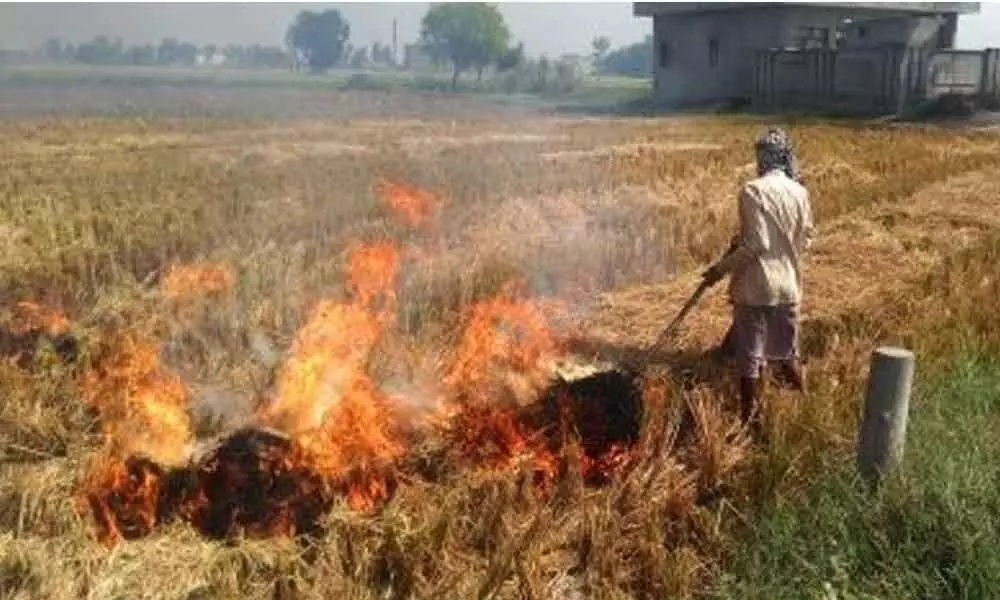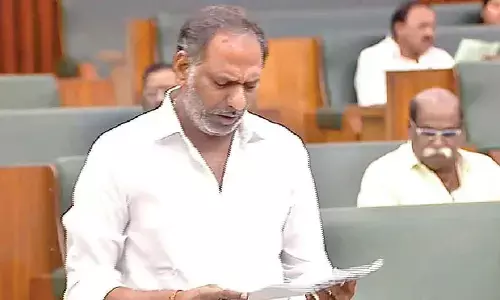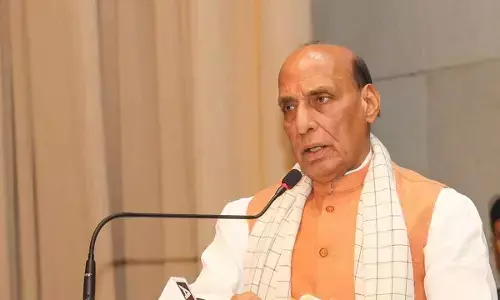Farm fires go unnoticed in other States

The farm fires in Punjab and Haryana hog all the limelight as they have a direct bearing on the air quality not just in Delhi-NCR but almost in entire north-west India.
New Delhi: The farm fires in Punjab and Haryana hog all the limelight as they have a direct bearing on the air quality not just in Delhi-NCR but almost in entire north-west India.
But are there no farm fires in other states? There are. But because the numbers are substantially less, for several reasons, there is just so less noise about these incidents of stubble burning in other states, especially south Indian states which witness negligible or almost nil instances.
The Indian Space Research Organization (ISRO) on a daily basis keeps a count of farm fires across India. On any given day in harvest season, apart from Punjab and Haryana, similar farm fires are witnessed in other states too.
The fire count at 1 pm on Sunday as recorded by the ISRO satellites was as follows: In Assam, Dhemaji district recorded farm fires at six places; in Chhattisgarh, Durg district recorded farm fires at two places; Dhanbad in Jharkhand, Guna district in Madhya Pradesh and Sundargarh in Odisha recorded it at one place each. In Gujarat, stubble burning was witnessed at Bharuch (2 incidents), Junagarh (1), Kachcha (5) and Surat (5) while there was just one incident at Sirohi in Rajasthan.
In Uttar Pradesh, Barabanki district recorded farm fires at three places, two at Kheri and one each at Etawah and Jhansi. However, two districts of Pilibhit and Shahjahanpur recorded higher incidents, 28 and 16 respectively. Udham Singh Nagar district in Uttarakhand, geographically adjoining western Uttar Pradesh, recorded farm fires at 35 places, the ISRO data recorded.
However, it is only the geography, meteorology and last but never the least, the proximity to the national capital that inevitably shifts all the focus on Punjab and Haryana.
Another aspect is that only Uttar Pradesh and Madhya Pradesh have laws that criminalise stubble burning but there is hardly any prosecutions as these incidents take place far and wide, in remote areas and the government machinery just does not have people to keep tab on all the fires.
However, the main reason lies in cropping pattern. "The problem is only with rice-followed-by-wheat cropping system that is common in Punjab and Haryana. In other states, it is mostly rice and pulses combination," explained executive director of Centre for Sustainable Agriculture (CSA), G.V. Ramanjaneyulu. He also lists two other reasons for farmers from other states for not burning stubble: there is no restriction on the date of sowing (as in Haryana of June 15 for paddy sowing) and there is no shortage of labourers; the two problems that prompt farmers from Haryana and Punjab to resort to stubble burning to save time ahead of rabi crop sowing, mainly wheat.
Stating that there have been instances of farm fires in states such as Madhya Pradesh for many years now, Tripathi said, it is going to have an adverse impact on air quality there. The state pollution control boards and even various government agencies are empowered to take action against such polluting instances under the relevant Air act, he said.








